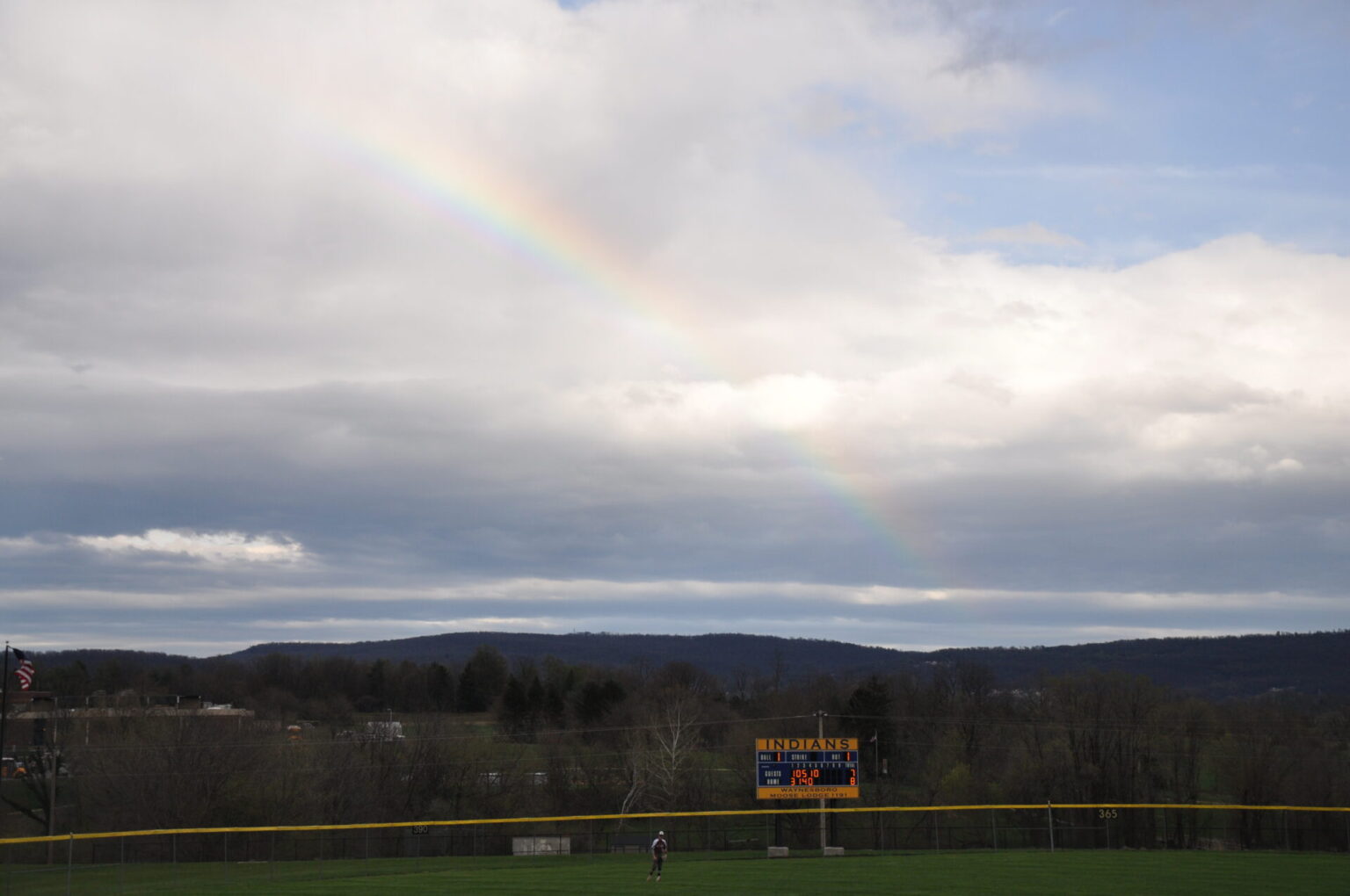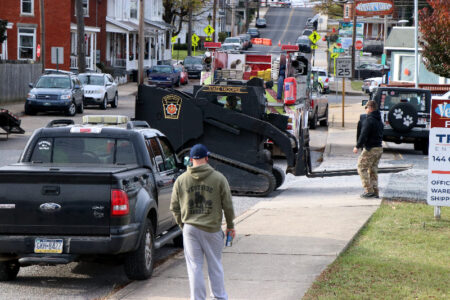HARRISBURG – Ahead of anticipated winter weather across the state Wednesday, which will turn to heavy rain with high winds and the potential for flooding, the Pennsylvania Department of Transportation (PennDOT), the Pennsylvania Emergency Management Agency (PEMA) and Pennsylvania Turnpike Commission (PTC) are advising motorists to avoid unnecessary travel during the storm. Additionally, PennDOT and PTC will implement various speed and vehicle restrictions throughout the storm due to anticipated high winds.
“Winter weather has arrived in Pennsylvania, and PennDOT, along with our partner agencies, is ready to respond,” said PennDOT Secretary Mike Carroll. “This will be a challenging event with rapidly changing conditions, and we ask the public to avoid unnecessary travel if possible. If you must travel, please exercise caution, check 511PA.com for the latest conditions, and give our crews space to safely and effectively respond to the storm.”
This will be a quick-moving weather event that may start as snow and mixed precipitation before changing to all rain, which will be heavy at times. Rain totals are expected to total two to three inches, with localized amounts of up to four inches in the central and eastern parts of the state. Temperatures will also rise quickly as the storm progresses through the state, and the combination of rising temperatures along with heavy rain and snow melt will likely lead to flooding, especially in the east. Additionally, high winds are anticipated, with sustained winds of 20-30 miles per hour and gusts reaching up to 70 miles per hour. This will accelerate snow melt and lead to increased risk of flooding, downed trees and power outages.
“This storm has the potential to bring significant flooding to parts of eastern Pennsylvania,” said PEMA Director Randy Padfield. “It is vitally important for everyone to be weather aware and make sure they know where they keep important documents that they might need to grab quickly if they need to leave their homes, and to plan where they would go if they had to evacuate.”
Padfield said anyone can sign up for free alerts so they’re notified when weather watches and warnings are issued for their area. This information can be especially important for anyone traveling after dark, as flooding can be harder to see at night. Anyone who plans to travel should be sure to have emergency supplies in their cars such as water, non-perishable food and any specific medical supplies they may need, as well as items for babies or pets if they’re in the car too.
Vehicle and speed restrictions will be communicated via variable message boards, the 511PA traveler information website and smartphone apps. Motorists can also sign up for personalized alerts on the website.
The following vehicle restrictions will go into place at 8:00 AM on Tuesday, January 9, in accordance with the commonwealth’s weather event vehicle restriction plan:
- Tier 2:
- PA Turnpike (I-76) from New Stanton (Exit 75) to Breezewood (Exit 161).
The following vehicle restrictions will go into place at 10:00 AM on Tuesday, January 9, in accordance with the commonwealth’s weather event vehicle restriction plan:
- Tier 2:
- Interstate 86, entire length.
- I-90, entire length.
Under Tier 2 restrictions, the following vehicles are not permitted on affected roadways:
- Tractors without trailers.
- Tractors towing unloaded or lightly loaded enclosed trailers, open trailers or tank trailers.
- Tractors towing unloaded or lightly loaded tandem trailers.
- Tractors towing loaded tandem trailers without chains or Alternate Traction Devices (ATDs).
- Enclosed unloaded or lightly loaded cargo delivery trucks/box trucks that meet the definition of a CMV.
- Passenger vehicles (cars, SUV’s, pickup trucks, etc.) towing trailers.
- Recreational vehicles/motorhomes.
- School buses, commercial buses and motor coaches, regardless of the availability of trains or ATDs.
- Motorcycles.
Tire chains or ATDs do not need to be installed under Tier 2 restrictions but need to be readily available for use should the vehicle become stuck and not be able to move because of poor traction.
On roadways where vehicles are not restricted, commercial vehicle drivers in particular are encouraged to exercise caution in high winds. Drivers should ensure their loads are secure, reduce speeds, increase following distance, and use flashers if necessary.
“Snow, ice, wind and rain can have an effect on driving conditions, and you may encounter all of these elements if you are traveling across our system,” said PA Turnpike CEO Mark Compton. “If you are traveling on the PA Turnpike and find yourself in need of assistance, dial *11 on your cell phone. A team member of the turnpike’s 24/7 operations center will respond to assist and dispatch help to your location as needed.”
During severe weather events, PA Business Emergency Operations Center (PA BEOC) coordinates preparedness and response information and updates from multiple state agencies, all of which is shared in real time via an online dashboard and regular email notifications. Sharing critical information with businesses of all sizes, the PA BEOC offers a forum for a trusted, two-way information exchange and provides an invaluable opportunity for private sector and government to build a common understanding of the impact of an incident. Businesses can learn more about private sector integration and how to become a Trusted Partner with the PA BEOC by visiting PEMA’s website.
To help make decisions regarding winter travel, motorists are encouraged to “Know Before You Go” by checking conditions on more than 40,000 roadway miles, including color-coded winter conditions on 2,900 miles, by visiting www.511PA.com. 511PA, which is free and available 24 hours a day, provides traffic delay warnings, weather forecasts, traffic speed information and access to more than 1,000 traffic cameras. Users can also see plow truck statuses and travel alerts along a specific route using the “Check My Route” tool.
511PA is also available through a smartphone application for iPhone and Android devices, by calling 5-1-1, or by following regional X alerts.
Motorists should not drive across roads covered with water. Even shallow, swiftly flowing water can wash a car from a roadway. Also, the roadbed may not be intact under the water. Never drive around barricades or signs on closed roads – Turn Around, Don’t Drown.
More information about how to prepare for any type of emergency, including specific information for people with access and functional needs or pets, is available on the Ready PA webpage.
For more information on safe winter travel, an emergency kit checklist and information on PennDOT’s winter operations including a video, visit www.PennDOT.gov/winter. Additional winter driving and other highway safety information is available at www.PennDOT.gov/safety.





















